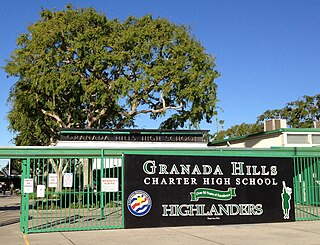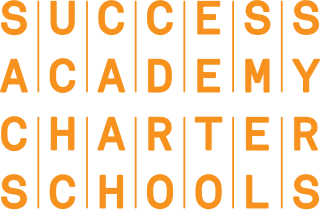Education reform is the name given to the goal of changing public education. The meaning and education methods have changed through debates over what content or experiences result in an educated individual or an educated society. Historically, the motivations for reform have not reflected the current needs of society. A consistent theme of reform includes the idea that large systematic changes to educational standards will produce social returns in citizens' health, wealth, and well-being.
A school voucher, also called an education voucher in a voucher system, is a certificate of government funding for students at schools chosen by themselves or their parents. Funding is usually for a particular year, term, or semester. In some countries, states, or local jurisdictions, the voucher can be used to cover or reimburse home schooling expenses. In some countries, vouchers only exist for tuition at private schools.

Thomas Sowell is an American author, economist, political commentator, social theorist, and senior fellow at the Hoover Institution of Stanford University.

A standardized test is a test that is administered and scored in a consistent, or "standard", manner. Standardized tests are designed in such a way that the questions and interpretations are consistent and are administered and scored in a predetermined, standard manner.

Charter schools in the United States are primary or secondary education institutions that are funded through taxation and operated by private organizations, rather than local school districts. They do not charge tuition, as they are funded with public tax dollars. Charter schools are subject to fewer rules than traditional state schools. Proponents argue that they are meant to serve underserved communities that wish to have alternatives to their neighborhood school. There are both non-profit and for-profit charter schools, and only non-profit charters can receive donations from private sources. However, there are several ways that non-profit charters can profit.

The No Child Left Behind Act of 2001 (NCLB) was a U.S. Act of Congress that reauthorized the Elementary and Secondary Education Act; it included Title I provisions applying to disadvantaged students. It supported standards-based education reform based on the premise that setting high standards and establishing measurable goals could improve individual outcomes in education. The Act required states to develop assessments in basic skills. To receive federal school funding, states had to give these assessments to all students at select grade levels.

Eric Alan Hanushek is an economist who has written prolifically on public policy with a special emphasis on the economics of education. Since 2000, he has been a Paul and Jean Hanna Senior Fellow at the Hoover Institution, an American public policy think tank located at Stanford University in California. He was awarded the Yidan Prize for Education Research in 2021.

Waiting for "Superman" is a 2010 American documentary film written and directed by Davis Guggenheim and produced by Lesley Chilcott. The film criticizes the American public education system by following several students as they strive to be accepted into competitive charter schools such as KIPP LA Schools, Harlem Success Academy and Summit Preparatory Charter High School.

As an educational reform goal, class size reduction (CSR) aims to increase the number of individualized student-teacher interactions intended to improve student learning. A reform long holding theoretical attraction to many constituencies, some have claimed CSR as the most studied educational reform of the last century. Until recently, interpretations of these studies have often been contentious. Some educational groups like the American Federation of Teachers and National Education Association are in favor of reducing class sizes. Others argue that class size reduction has little effect on student achievement. Many are concerned about the costs of reducing class sizes.

Intellectuals and Society is a non-fiction book by Thomas Sowell. The book was initially published on January 5, 2010 by Basic Books.
The racial achievement gap in the United States refers to disparities in educational achievement between differing ethnic/racial groups. It manifests itself in a variety of ways: African-American and Hispanic students are more likely to receive lower grades, score lower on standardized tests, drop out of high school, and they are less likely to enter and complete college than whites, while whites score lower than Asian Americans.
Eva Sarah Moskowitz is an American politician and education reform leader, who is the founder and CEO of the Success Academy Charter Schools. A member of the Democratic Party, Moskowitz served on the New York City Council, representing the 4th district on the Upper East Side, from 1999 to 2005. Moskowitz interviewed to be Donald Trump's Secretary of Education, but decided not to pursue the position.

Success Academy Charter Schools, originally Harlem Success Academy, is a charter school operator in New York City. Eva Moskowitz, a former city council member for the Upper East Side, is its founder and CEO. It has 47 schools in the New York area and 17,000 students.

Inside American Education: The Decline, The Deception, The Dogmas is a book by economist and social theorist Thomas Sowell that details Sowell's assessment of the state of education in the United States.

School segregation in the United States is the separation of students based on their race to the extent that an institution can be racially predominant by black students or white students. Currently more than half of all students in the United States attend school districts with high racial concentrations and about 40% of black students attend schools where 90%-100% of students are non-white. Contemporary school racial segregation is most noticeable in California and New York.
Libertarian perspectives on affirmative action consistently coincide with the way that libertarians view the state as a coercive power. Many libertarians believe that the state should not be used as an instrument of power in enforcing what they call positive discrimination.

Unequal access to education in the United States results in unequal outcomes for students. Disparities in academic access among students in the United States are the result of several factors including: government policies, school choice, family wealth, parenting style, implicit bias towards the race or ethnicity of the student, and the resources available to the student and their school. Educational inequality contributes to a number of broader problems in the United States, including income inequality and increasing prison populations. Educational inequalities in the United States are wide-ranging, and many potential solutions have been proposed to mitigate their impacts on students.
Martin Carnoy is an American labour economist and Vida Jacks Professor of Education at the Stanford Graduate School of Education. He is an elected member of the National Academy of Education as well as of the International Academy of Education. Professor Carnoy has graduated nearly 100 PhD students, a record at Stanford University.

Wealth, Poverty and Politics: An International Perspective is a book by American economist and social theorist Thomas Sowell. It was originally published by Basic Books in 2015, with an updated version published in 2016. In the work, Sowell argues against the notion that economic equality is solely natural, and examines geographic, cultural, social, and political factors that have contributed to the wealth of groups and nations.

Basic Economics is a non-fiction book by American economist Thomas Sowell published by Basic Books in 2000. The original subtitle was A Citizen's Guide to the Economy, but from the third edition in 2007 on it was subtitled A Common Sense Guide to the Economy.














